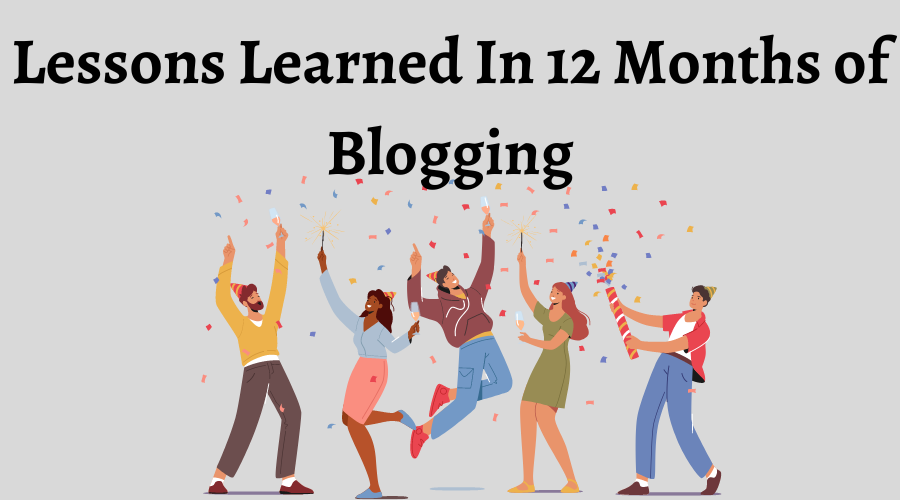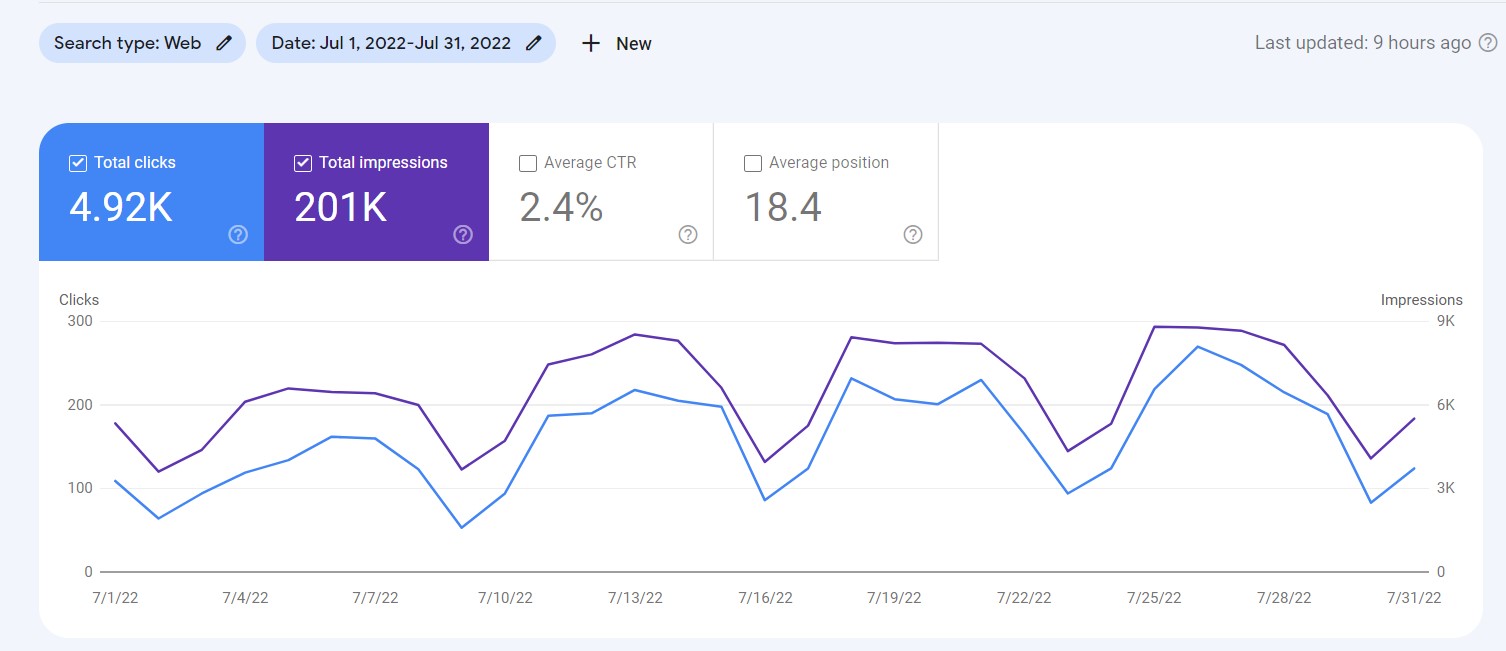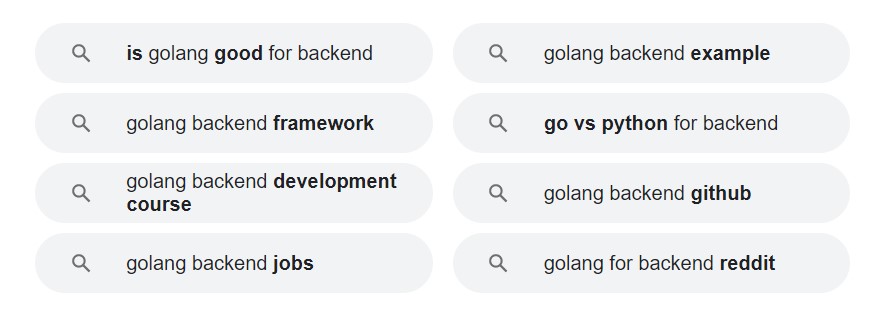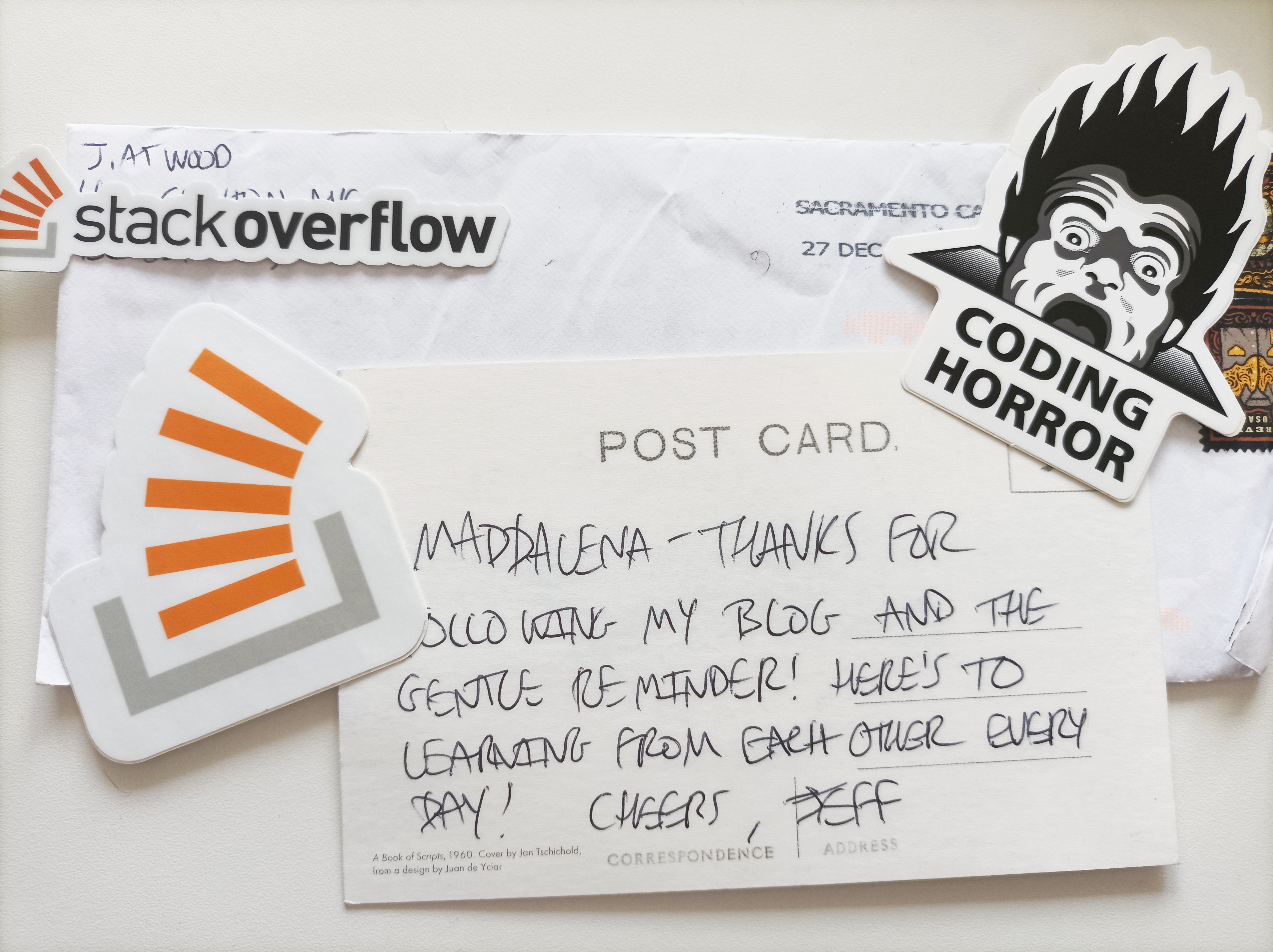Lessons Learned In 12 Months of Blogging
 Maddy
MaddyTable of contents
- 1. It Takes Patience
- 2. Keyword Research Is King
- You Don't Need to Write 2000-Word Articles
- You Don't Need to Publish a Blog Every Day
- The Articles You Think Are "Useless" Are the Ones You Need to Publish
- Let Go of Perfectionism
- Blogging Is All About Your Readers
- It's Not a Get-Rich-Quick Schema
- Build an Email List From Day 1
- Blogging Can Attract Opportunities
- What’s My Motivation Behind Blogging?

This blog is officially 12 months old! 🎉
I started this blog in August 2021. I've written over 50 articles, managed to rank multiple of them on page 1 of Google, and gathered a vast understanding of blogging.
In this article, I'll share all the lessons I've learned in 12 months of consistent blogging, and you can use them to grow your blog.
Let's start.
1. It Takes Patience
Blogging is not as glamorous as social media makes it look.
It takes patience, hard work and determination to write content and persevere with it, especially at the very beginning when no one notices you.
It took me about 5/6 months of writing before the Google algorithm started recognizing my blog.
If you ever start a blog, have realistic expectations, and remember that you'll be playing the long game.
Write for one person. And keep writing for that one person.
By writing and helping that one person, you're unconsciously helping many people.
Related: Pros And Cons Of Running A Blog
2. Keyword Research Is King
If you want to rank your blog on search engines, keyword research is where you should spend a good chunk of your time as a tech blogger.
Bear in mind that Google ranks blog posts, not entire blogs.
What is keyword research?
Keyword research means finding the words users enter when researching on Google (or any other browser).
How do you do keyword research?
You can do free keyword research or use paid tools, such as Keysearch (the most affordable I've found so far) or Ahrefs (the most expensive).
So far, I've managed to grow my blog to 4.9k users monthly users, all for free, just by doing keyword research on Google.

Start by listing topics you'd like to write about on your blog.
For example, let's say you want to write an article about "Golang".
Next, you should think about words that fall under "Golang". Or, to put it simply, think about what a user could type when using the word "Golang".
Some examples can be:
What is the Golang programming language?
What is Golang used for?
How to use Golang for the backend?
Have a look at the search volume.
Let's assume you will write a topic about "How to use Golang for backend".
On Google, this query has 173,000,000 results. This means that over 100M people are searching for this query per month, which results in higher chances for you to rank higher on Google.
What to do next?
Research similar keywords. In this step, you want to understand the user intent. What does the user want to know about using Golang for the backend?
Looking at the feedback section helps with this.

From here, you could write an article that contains the keywords "Golang" + "backend", such as:
X Golang backend frameworks.
X ways to use Golang for backend development.
Why Golang is good for backend development.
Again, these are just simple examples to get you in the right direction.
Keyword research and SEO are huge topics.
Related: How To Increase Your Blog's Traffic in 3 Easy Steps
You Don't Need to Write 2000-Word Articles
I think this is the reason people fear blogging because they believe they need to write super long content.
There's this ongoing myth that you must write 2000-word articles to rank on Google.
In my experience, this is far from the truth.
Most of my articles are under 1000 words, a lot of them even under 800 words.
Writing long-form content doesn't help if the content is not around what users are looking for.
You Don't Need to Publish a Blog Every Day
Writing a blog post a day will lead you to burnout and quickly give up blogging.
I find that publishing 1 article per week is enough to keep feeding the algorithm and grow your blog sustainably without giving up your entire social life.
Always prioritize quality over quantity because when you write quality content, people are more prone to share your content on social media and with others.
The Articles You Think Are "Useless" Are the Ones You Need to Publish
The internet is full of beginners.
What you define as "obvious" or "easy" can be a challenge for someone else.
When I started learning how to code, concepts such as "variables" and "methods" were difficult for me.
Everyone has a unique learning style.
Many beginners read so many blog posts on different websites to understand just one concept until they land on one blog, and everything clicks. That blog could be yours.
Don't underestimate the help you can give another beginner, even if you are a beginner yourself.
Related:Five Great Ways To Find Content Ideas For Your Dev Blog
Let Go of Perfectionism
You don't need to be perfect to start writing.
Your blog doesn't need a fancy logo, background, etc.
In my opinion, users don't care about that.
They only care about whether your blog solves their problems.
Your writing style will get better by writing and reading more.
It's the result of putting in the hours that will make you a better blogger.
Related:3 Things You Can Do To Improve Your Technical Writing Skills
Blogging Is All About Your Readers
If you want to grow your blog, please remember that blogging is about your readers.
Gone are the days when you could write about yourself on a blog.
Readers don't care that much.
Blogging is about answering people's questions or concerns over the internet.
It's Not a Get-Rich-Quick Schema
If you want to start a blog to make money as soon as possible, I'm sorry to say that very likely it won't happen.
It takes months to gain traffic.
Years to get thousand of monthly traffic.
It takes other skills to turn readers into people who want to purchase your products.
Blogging is a journey that requires thinking in terms of years.
Build an Email List From Day 1
Start collecting emails from day 1.
Delaying that means missing opportunities to have a longer backlog of emails you can use to build potential customers.
Have the option on your blog for people to subscribe to your email newsletter.
Blogging Can Attract Opportunities
With this blog, I've received opportunities from companies (Google among these) to become a Technical Writer or Developer Advocate.
I didn't take these opportunities at the time, but it's proof that writing online is an excellent way to attract opportunities smoothly.
You can also receive gifts just for mentioning other people's products or blogs like it happened to me with Jeff Atwood (co-founder of StackOverflow)! 😁

What’s My Motivation Behind Blogging?
I've fallen in love with the process of crafting a blog and learning SEO as a result.
Ideally, in some years, I'd love to get to the point where this blog becomes a source of income.
I believe it's possible through patience and perseverance.
Lessons Learned In 12 Months of Blogging Conclusion
In this article, I've shared my experience with blogging.
I hope you've found it helpful and inspiring. I believe blogging is challenging but rewarding.
What have you learned in your blogging journey?
Let me know in the comments.
Until next time!
🙋🏾♀️
Further Reading:
Subscribe to my newsletter
Read articles from Maddy directly inside your inbox. Subscribe to the newsletter, and don't miss out.
Written by

Maddy
Maddy
Software engineer turned technical writer.